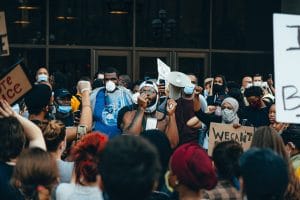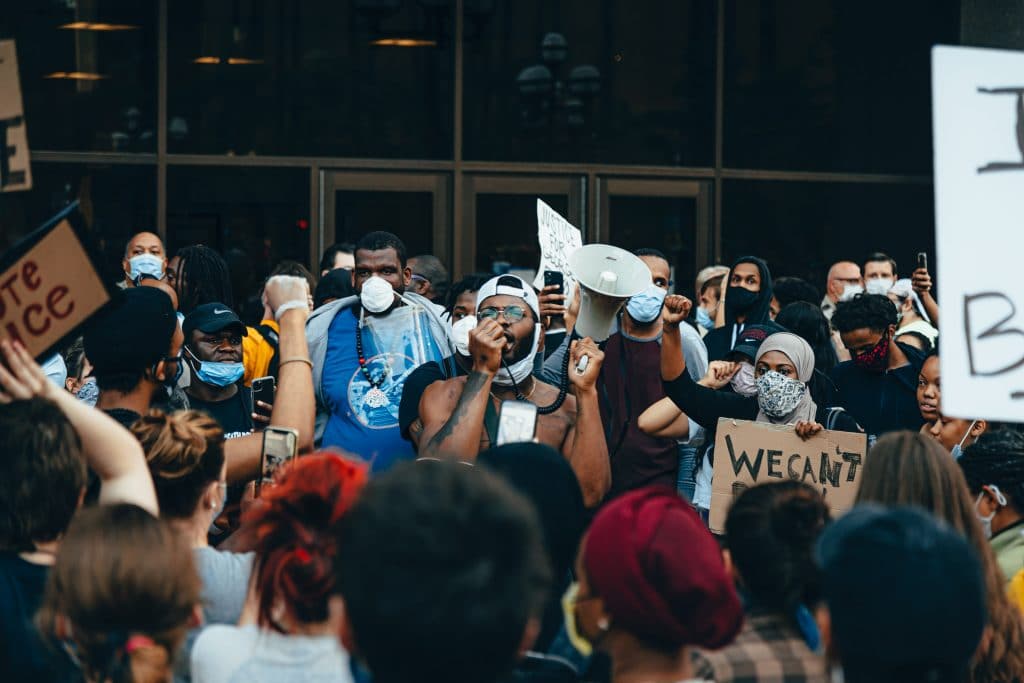Why so many corporate posts fell flat in admonishing an obvious problem

Unrest across the country in the wake of the murder of George Floyd, along with the deaths of Breonna Taylor and Ahmaud Arbery, prompted #BlackoutTuesday, a social media movement that evolved into a collective stand against police brutality and systemic racism. Participants changed their profile pictures to an image of a solid black square and offered words of support towards Black Lives Matter and protests around the nation.
In short order, we saw a seemingly endless parade of brands join the campaign. With a handful of exceptions, their participation was characterized by a collection of vague, milquetoast statements that fell flat with audiences. Although the seriousness of the issue warranted a halt to playing the middle ground or haphazardly hopping on a social media trend, what brands delivered were soulless messages that didn’t say anything substantive or offer tangible solutions to the matter at hand.
In times like these businesses have the opportunity to use their platforms and resources to affect real changes. Here’s why so many of their attempts didn’t work:
Brands did not address their specific role in fighting the problem
The battle against systemic racism should start within your own four walls. Every industry has to acknowledge how it has contributed to inequality and embrace its role in fighting it. Donating money is great; organizations deep into the battle for civil rights know how to best steward financial resources that aid the cause. However, just writing checks isn’t going to make the problem go away. You must take direct action within your field in order for solutions to emerge.
Does your staff lack racial diversity? If so, your role is to identify bias in your hiring process and come up with ways to eliminate racial discrimination towards applicants.
Maybe you’ve opened up an urban “Third Place” that’s acting as a catalyst for gentrification, driving out disadvantaged residents due to rapidly rising real estate costs. It’s your job to fight for equity of the existing community within the neighborhood you do business in, counteracting dynamics that would otherwise alienate and displace them.
If you truly believe that you’ve benefited from a rigged system, you’ve got to take on the challenge of changing your environment so that everyone has an opportunity to thrive.
The message wasn’t clear enough
We all saw the vague platitudes. They signaled a desire to aid in the fight against systemic racism, so long as it’s possible to do so without making anyone too uncomfortable.
What does it mean to stand against “injustice” or decry “inequality”? I would hope you already opposed immoral practices in your city and workplace even before recent protests and calls for reform. It’s one of those ideals that we all assume is inherently true of the companies we support.
The outrage many Americans are feeling is about specific issues. If you’re afraid of who you might offend by taking a firm stand against police brutality or by saying “black lives matter,” don’t expect people to view you as a leading voice in this battle.
Their timing was off
Fair or not, being late to post caused people to question how legitimate a company’s concerns about this issue really were. It raised doubts about whether they were speaking out in a show of full-hearted support or just posting relevant content in search of likes and shares. These tardy posts appeared self-serving and shallow. They took on more of a “look at me” feel at a time when so many are begging people to “learn from me.”
The solution to this problem (and all the others mentioned) is to follow up banal words with inspired action. Audiences will soon forget the posts we saw this past week. But through collective, earnest efforts we can see powerful change.
For an updated look at brands’ responses to racial injustice, head here. For help crafting genuine messaging and a long term action strategy for speaking against racial injustice, reaching diverse audiences, and affecting change through your digital channels, reach out to TrustWorkz.






